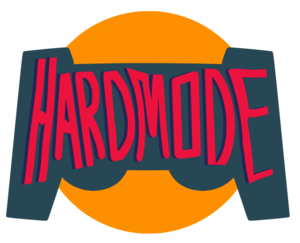Our community is diverse, and one aspect of that community are those with an intellectual disability. This disability originates before the age of 18.
It was reported in 2012 that about 2.9% of the Australian population (2.9 out of 100 people) had an intellectual disability. (ABS, 2014). That equates to over 600 people in Burnie.
This fact sheet is to give you some understanding of this diversity and some local resources.

Causes, symptoms, and characteristics
Intellectual disabilities affect someone’s intellectual skills and behaviour, such as the ability to learn, communicate, reason and retain information.
A person is classified as having an intellectual disability if their IQ falls below 70 with categories of mild, moderate, severe, and profound levels of intellectual impairment.
The majority of intellectual disability is caused by genetic factors, but also can be caused by problems during pregnancy and birth, illness, or environmental factors.
Various signs that young people may have an intellectual disability
- Difficulty with learning and understanding
- Slow development (e.g. language development)
- Difficulty reasoning
- Displaying a lack of social skills
- Lack of adaption to learn from experience
- Limited daily activities without assistance
- Hyperactivity
Communication Tips

Speak slowly and leave pauses for the person to process your words in short clear sentences.
Look and speak directly to the person with disability, not just to the people accompanying them.
Offer to repeat anything you say that you may not have said clearly.
Never pretend to understand what a person is saying if you don’t. Ask the person to repeat or rephrase, or offer them a pen and paper.
Be considerate of the extra time it might take for a person to do or say something.
When unsure of ability to understand assume competence and adjust accordingly. It is more appropriate and respectful to assume competence than assuming a lack of understanding.
Addressing discrimination

Tasmanian legislation (Anti Discrimination Act, 1998) aims to prevent discrimination against people who have who have temporary and permanent disabilities; physical, intellectual, sensory, neurological, learning and psychosocial disabilities, diseases or illnesses, physical disfigurement, medical conditions, and work-related injuries.
The legislation also aims to prevent discrimination against families, friends and associates of people who have disabilities.
If the discrimination occurs in a Commonwealth building, a Commonwealth service or if the person is employed or seeking employment with a Commonwealth Department then the Disability Discrimination Act 1992 (Cth) will apply.
If you hear of, or are told by a community member that they have suffered discrimination, ring the office of the Anti-Discrimination Commissioner Phone: 1300 305 062 or (03) 6165 7515 and email [email protected] for more information and support.
Support Services for Young People in Burnie
‘Speak Out’ in Burnie has a youth Peer Support and self-advocacy group. Council’s Youth Development Officer works with these young people under the YMCAB (Youth Making Changes Around Burnie) Program.
2 Spring Street
Phone: (03) 6431 9333
Email: [email protected]
Mission Australia provides employment services for young people with a disability as well as help them understand and access the NDIS.
Level 2 Harris Building, 49-51 Cattley Street
Employment Phone: (03) 6432 1909
Employment Email: [email protected]
NDIS support Phone: (03) 6420 6850
NDIS support Email: [email protected]
Anglicare Disability Services, among other programs, provides accommodation and support to individuals with a disability so that each person is empowered to live as independently as possible.
6 Strahan Street, Burnie, Tasmania, Australia
1800 243 232 (freecall in Australia)
Further Information
Further information on the causes, symptoms and characteristics of intellectual disability
Further information around discrimination and the legal aspects surrounding disability
Further information around communication with people with an intellectual disability
References
ABS. (2014, June 30). 4433.0.55.003 - Intellectual Disability, Australia, 2012. Retrieved April 24, 2020, from Australian Bureau of Statistics: LINK
Anti Discrimination Act. (1998). https://www.legislation.tas.gov.au/view/html/inforce/current/act-1998-046






